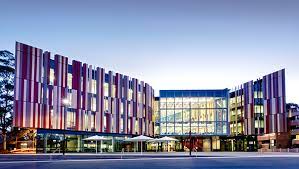Macquarie University: New ARC Training Centre to transform growing Bioactives industry
Bioactives are compounds that are naturally present in food and could exert a beneficial effect when consumed. They are often claimed to have antioxidant, anti-inflammation, or antimicrobial properties or to enhance the growth of beneficial microbes. Currently, many consumer products containing bioactives make it to market with little scientific understanding of whether or why they work or even what aspects of a product might be relevant for its activity.
It is estimated that 70 per cent of Australians consume foods, supplements or personal care products containing (or claiming to contain) bioactives and the global market is growing by more than eight per cent annually.
Supported by a $5 million ARC grant, over the next five years Macquarie University’s FAAB brings together Deakin University, the University of South Australia and Western Sydney University with research universities in the UK, Germany and Brazil, and 14 respected Australian industry partners. The team will develop methods for characterising products of high molecular complexity to address current and emerging consumer health and healthier lifestyle choices.
Importantly, FAAB will also apply advanced methods to characterise the molecular identity of bioactives, providing scientific evidence for their positive impact on health, enabling consumers to make more informed choices when purchasing products with health benefit claims, and supporting the development of regulatory frameworks.
The Centre’s Director, Professor Alison Rodger from Macquarie University, says she is delighted that Macquarie University will be part of such a transformational change for the bioactives sector. She, together with FAAB’s Partnerships Director, Professor Anwar Sunna, and Research Director, Dr Alfonso Garcia-Bennett, are looking forward to developing new ways of working with FAAB’s industry partners.
CEO of the Australian Research Council, Ms Judi Zielke explained that “this facility will give young and early career researchers the opportunity to gain practical skills and experience through placements with industry. It will also support the community by scientifically validating claims of health-benefits for bioactive products.”
The cross-sector team will use world-leading research to improve the health and wellbeing of Australians.
A key feature of the new Centre is its training programme which will engage and support students and staff through transformative learning experiences. FAAB will deliver not only world-leading research and important regulatory change in this space, but it will serve to build a stronger workforce to enhance biotechnology industries.”
“There is huge growth in the market for bioactives on a global scale, so to be able to support Australia in contributing is exciting. We are looking forward to see how the dynamic community transforms as the Centre begins its work, not only the bioactives sector but also the University,” says Professor Rodger.

